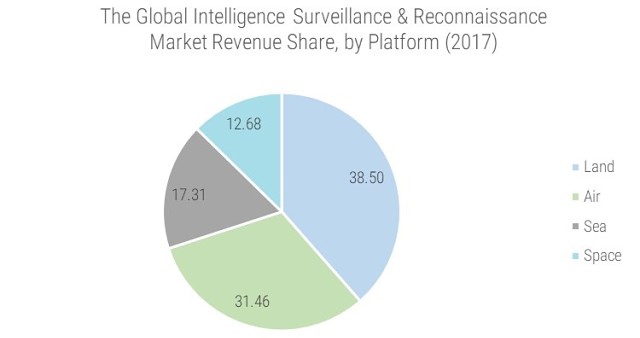Kleos Space hits ASX launch pad to commercialise maritime activity based intelligence

Kleos plans to use to the funds raised to launch their first satellite system in mid-2019, with the data from the satellites to be used to help protect borders and provide maritime security.
Maritime intelligence and ‘data-as-a-service’ company Kleos Space (ASX: KSS) has made its long-awaited debut on the ASX after completing a successful A$11 million capital raising.
Small Caps first reported on Kleos’ plans in June this year, with the today’s listing representing the product of months of preparation by the Luxembourg-based tech company.
The company’s shares were formally admitted to the ASX earlier today with current CEO Andy Bowyer saying that the capital raising was indicative of strong investor interest towards satellites and “reflective of the worlds current desire to advance space-powered intelligence”.
Upon listing, Kleos’ shares opened trading at $0.145 this morning.
To make its ASX debut, Kleos was spun-off from UK-company Magna Parva, an international R&D consultancy with multiple projects aimed at private-sector space projects. Magna Parva was founded by Andrew Bowyer and Miles Ashcroft in 2005 and has been developing engineering services solutions for the space industry ever since, including the European Space Agency (ESA).
The capital injection means Kleos is enabled to launch its first satellite system mid-2019 to target the $41 billion global intelligence surveillance and reconnaissance (ISR) market.
The first Kleos “space satellite system” known as Kleos Scouting Mission (KSM), is expected to deliver commercially available data and perform as a technology demonstration. Kleos says that KSM is a “keystone for a later global high capacity constellation” and has confirmed that the scouting mission will deliver targeted daily services to begin with, while the full constellation will deliver “near real-time global observation”.

According to industry research conducted by Mordor Intelligence, intelligence surveillance via land is the largest market segment representing almost 40% of the entire market, while air-based technology has 31.5% and sea-based has 17.3%. Space technology makes up around 12.7% and could record the sharpest growth rates considering its novelty and comparatively higher levels of spare capacity.
Actualising commerce in space
As part of its preparations for its maiden listing, Kleos recently signed a $3.5 million agreement with Nasdaq-listed company GomSpace and says it expects the US company to deliver its first satellite system by mid-2019. Kleos is also pursuing “early stage discussions” with a number of high-profile “space contenders” who have the ability to launch Kleos’ satellite into orbit.
According to Kleos, the data from Kleos satellites will help protect borders and provide maritime security which will be led by a team with extensive space engineering experience including multi-million-euro contract deliveries for the ESA including the Mars Exploration Mission.
“The capital raising had significant interest from Australian based institutional groups. Our listing comes at a time where governments around the world are seeking new technology to protect their borders, and we believe Kleos will provide a solution,” said Mr Bowyer.
Kleos’ mission plan has been approved and is being backed by the Luxembourg government with the company’s satellites reportedly being able to locate radio transmissions from anywhere on Earth with the highly-valued capability of detecting where the transmission was transmitted from, and when.
Mr Bowyer said that “when ships turn off their transponders at sea, our satellites can capture the ships other transmission activity from space. This other data is critical for governments and will give them the ability to track ships used by drug and people smugglers, terrorists, pirates, illegal fishermen and those in need of search and rescue.”
The extensive list of service features made possible by nano-satellites is garnering attention not only from companies and investors, but also, the Australian government. The hope is that government participation will help to generate further development and greater monetisation opportunities for Kleos.
Kleos chairman Peter Round hinted at the possibility of government contracts constituting a significant portion of future sales and that various government agencies could potentially benefit from satellite-powered intelligence.
“With Australia’s large coastline borders under the constant threat of people smuggling and illegal fishing, our satellite technology offers an alternative to current land-based solutions, which are expensive, technically limited by range, and subject to counter threats,” said Mr Round.
In May, the federal government introduced new legislation to grow Australia’s satellite launch capability and announced it will provide $26 million to establish a national space agency. Last year, the Australian government pledged a further $500 million to improve Australia’s space-based ISR capabilities.
